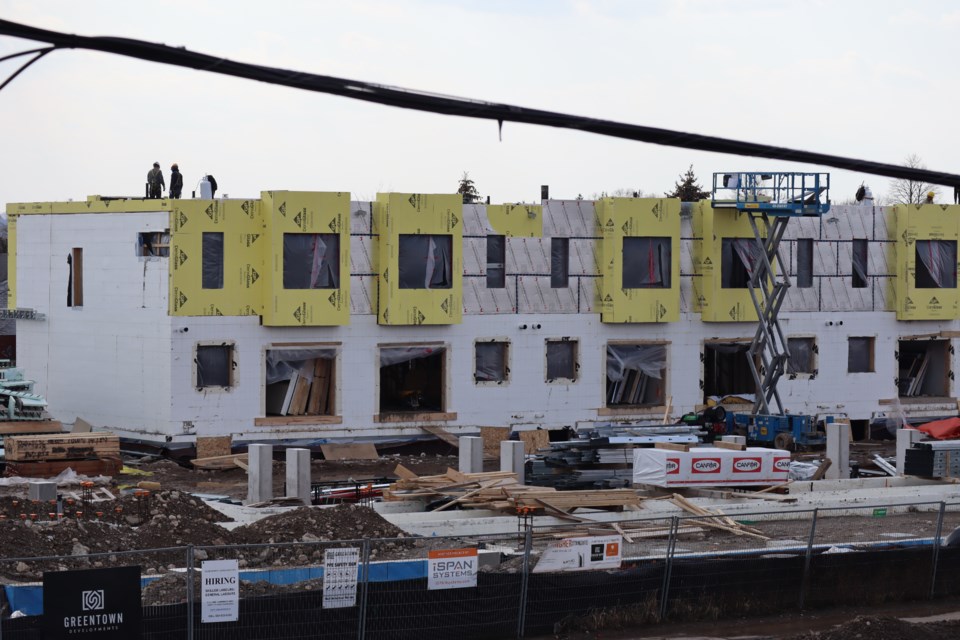The City of Cambridge has seen a record run on building permits over the last year. But while the rate of construction is the most ambitious the city has ever seen, there is a notable under representation of affordable units included in those proposals.
It's one of the reasons Ward 5 councillor Pam Wolf thinks the city needs to do more to get developers to commit to affordable housing.
“If we were allowed to do inclusionary zoning, then it would just be automatic that any developer that comes has to put in 20 per cent of affordable housing,” Wolf said.
Inclusionary zoning allows cities to require new developments of ten or more residential units within 800 metres of a major transit hub to dedicate a certain number of units to affordable housing.
But unlike Kitchener and Waterloo, inclusionary zoning isn't available to the City of Cambridge to use as a regulatory tool to require affordable housing.
A study conducted by the Region of Waterloo concluded the city's transit hubs do not qualify under the provincial criteria for the planning measure.
The most city council can do is recommend a developer add affordable units to their building.
If a building is zoned for six stories but the developer is looking to make it 16, they need permission from the city first.
Oftentimes, city planners will recommend developers allocate a certain number as "affordable units."
But according to Wolf, most developers have opted to pay a cash amount per unit in lieu of having to add these affordable units in their buildings.
“The money that they offer us goes back into the city’s affordable housing fund,” Wolf explains.
The reserve fund "provides capital grants on a per unit basis to eligible not-for-profit organization or partnerships of not-for-profit organizations and the private sector to assist in the development of affordable rental housing targeted to low income individuals or families determined to be in core housing need."
The 37-story condo tower and hotel being built by Pearle Hospitality next to the Cambridge Mill is one example of where cash in lieu was used to appease concerns about the project's lack of affordable units.
When the Water Street North project got the green light from council last October, the developer donated $500,000 to the city's affordable housing fund in lieu of adding affordable units to the building.
“This was the largest donation we’ve ever received for affordable housing,” Wolf says.
But since there are no guidelines or regulations on how much a developer should have to pay in lieu, Wolf says the city has been offered as little as $200 per unit.
To address the problem, Wolf says she'd like to see more done by the Ontario government to expand inclusionary zoning bylaws.
“Everybody is controlled by the province. So if we have a different government, you might be able to have inclusionary zoning anywhere in the city,” Wolf says.
The city has attempted to increase the amount of affordable housing in other ways.
For the past several years, the city has waived development charges (DCs) for new construction in the city's three core areas and for affordable housing developments built anywhere in the city.
Finance staff say the policy to waive the fees in the city's three cores has boosted development in those areas at a cost of about $25 million since 2015.
It would cost the city a further $26 million over the next five to 10 years if the core DCs exemption was to remain in place.
Meanwhile, taxpayers have had to make up for the lost revenue since the money goes towards the municipality’s growth-related capital expenditures on infrastructure and service improvements.
Next week, city staff will once again table its recommendation that council repeal the core exemption while keeping the incentive in place for any development that includes affordable units.
“We are not removing it for affordable housing, we want to continue to promote that in this city. If anything we will broaden it,” Wolf says.



